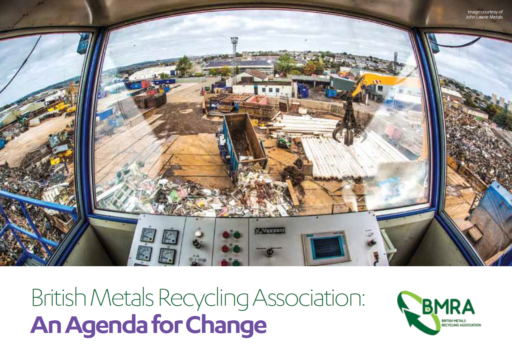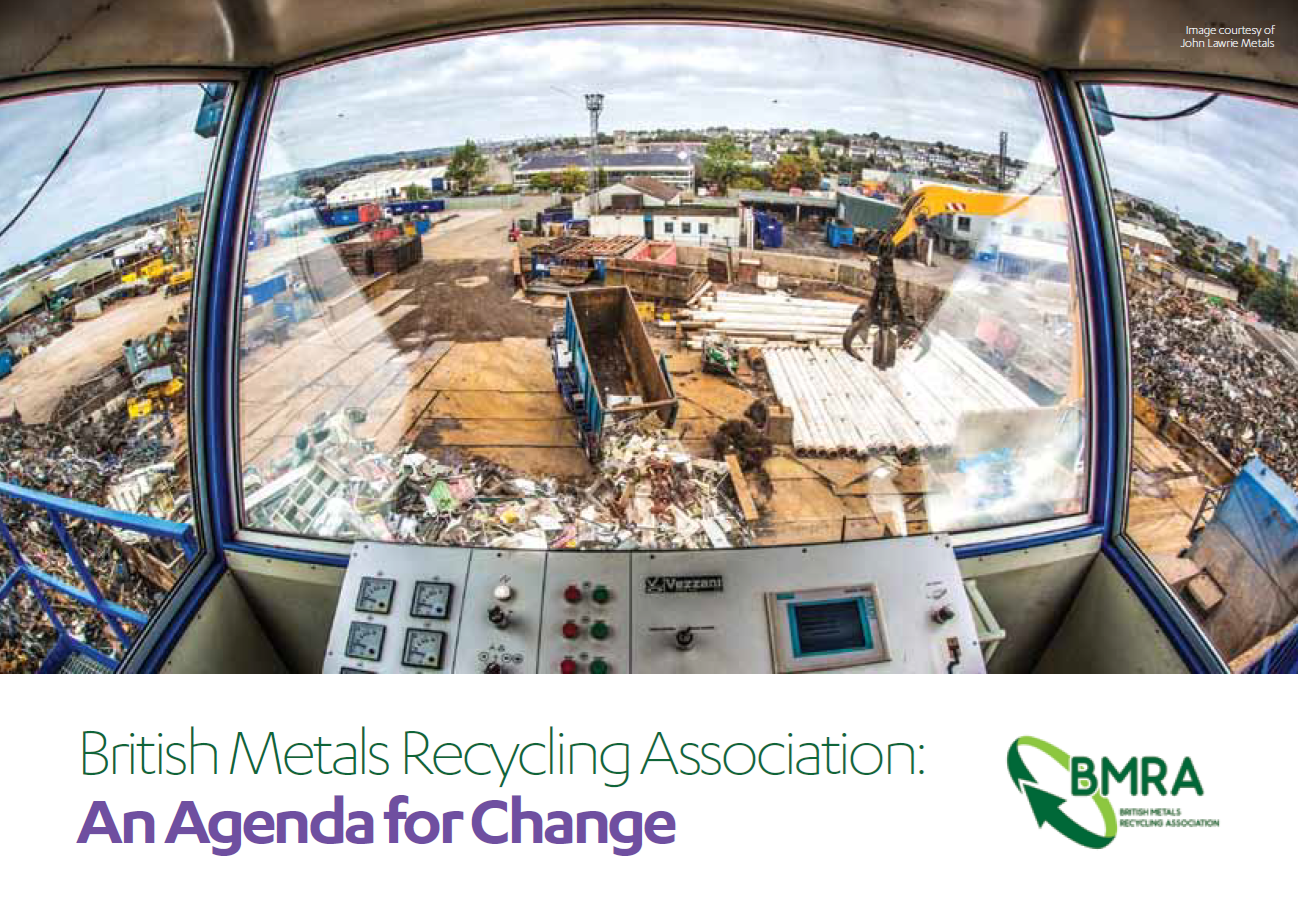Maintaining global exports, reducing energy costs, and improving kerbside collections among key industry requests
The British Metals Recycling Association (BMRA), the representative body for the UK metals recycling sector, is calling on the Government to take action to create a more favourable business environment for metal recyclers. By supporting industry growth and recognising its sustainability benefits, BMRA believes the sector can play a vital role in helping the UK achieve its net zero targets by 2050.
The association has presented An Agenda for Change to key Government Ministers, outlining the main policy changes needed to support the metals recycling industry. The document calls for measures to protect free and fair trade, enhance site safety, and contribute to the country’s net zero ambitions.
Presented at a parliamentary dinner, the agenda highlights several key industry concerns and urges the Government to:
- Ensure free and fair trade by avoiding export restrictions on metal, as the UK metals recycling industry can supply more than enough scrap metal to support domestic steel production.
- Increase treatment facilities for hazardous and Persistent Organic Pollutants (POPs) waste while promoting eco-design to phase out harmful substances.
- Allow metal recyclers to benefit from the British Industry Supercharger (lower energy costs) and encourage collaboration between recyclers and steelmakers to drive technological innovation.
- Introduce kerbside collection for batteries and small Waste Electrical and Electronic Equipment (WEEE) to reduce the risk of fires caused by lithium-ion batteries at recycling and waste sites.
- Establish minimum recycled content requirements for all new public sector infrastructure projects.
- Implement a variable-rate deposit return scheme to promote the use of fully recyclable metal over plastic.
BMRA CEO James Kelly emphasised the importance of metals recycling in achieving net zero goals, stating:
“Given recycling’s prominence in achieving net zero goals, and metals’ 100% recyclability, the Government needs a strong metals recycling industry. It will benefit the country to move forward and reach its 2050 targets.”
“I am looking forward to laying out BMRA’s lobbying priorities for the UK metals recycling industry, focusing on key asks that enable our industry to operate in the most cost-efficient and sustainable way.”
“Metals recycling’s evidential impact on sustainability and climate is clear – it lowers CO₂ and helps preserve natural habitats by reducing the need for primary extraction and raw materials. BMRA’s calls on the Government are simple and clear: strongly consider the UK metals recycling industry’s impact to your own ambitions.”
Key Industry Insights
- The UK generates 11.5 million tonnes of scrap metal annually, with 70–80% exported. Even if UK steelmakers used 100% of their required scrap metal (expected to reach 60% of total arisings), there would still be a 4-million-tonne surplus available for export.
- The cost of disposing of hazardous materials for metal recyclers is around £300–400 per tonne, yet the volume of such materials continues to rise.
- More than 1,200 fires occur each year in the waste industry due to lithium-ion batteries, as there are currently no easy disposal routes.
- The switch to Electric Arc Furnaces, capable of running entirely on scrap steel, would be accelerated by lower electricity costs across the metals industry. Additionally, replacing diesel-powered balers with electric alternatives could cut CO₂ emissions by 49%.
- The Government can support the green economy and achieve net zero targets by embedding sustainability into public sector procurement. Using just one tonne of recycled steel in public procurement could prevent 1.5 tonnes of CO₂ emissions.
- A flat-rate deposit return scheme encourages plastic consumption over steel and aluminium cans, potentially leading to the production of an additional 826 million plastic bottles.
To read An Agenda for Change, visit: www.recyclemetals.org/agenda-for-change.






